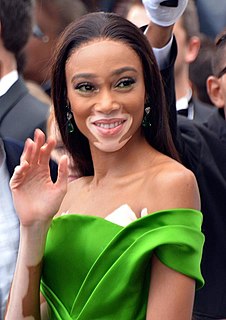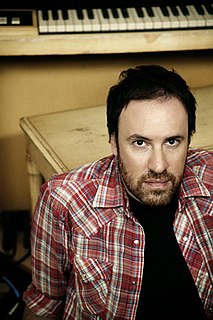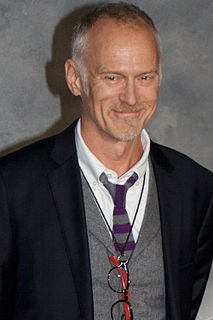A Quote by Karthik Subbaraj
At any filmmaking class, you learn the power of the visual medium and are always trying to minimise the words.
Related Quotes
Film is a temporal medium as much as it is a visual medium: you're playing with time, and you don't have that ability where someone can pause at home. That's such a fundamental part of what makes filmmaking exciting to me. I don't really have as much interest in any other medium. I just like the control.
At the end of the day, some authors will endure and most, including some very good ones, will not. Why do I think reading is important? It is such an effective medium between mind and mind. We think largely in words. A medium made only of words doesn't impose the barrier of any other medium. It is naked and unprotected communication. That's how you get pregnant. May you always be so.
What's great is that each medium has a unique set of things that it does and does well. Film is a visual medium, and obviously, you can't fit a whole book into two hours unless you're really economical about it. Obviously, they say a picture is worth a thousand words, and on some level, it's sort of true.
Usually in theater, the visual repeats the verbal. The visual dwindles into decoration. But I think with my eyes. For me, the visual is not an afterthought, not an illustration of the text. If it says the same thing as the words, why look? The visual must be so compelling that a deaf man would sit though the performance fascinated.
You're creating music to pull people into a world, whether it be a visual medium where music is just one element, or a purely musical medium. Either way, you're trying to transport people and to create a connection. I've always felt that the best films and the best albums can be the best company. If people feel a little bit less alone because of something I had a hand in creating than I feel like I'm contributing to the world in a positive way.
To anyone who's trying to be an artist, in any medium, it's a very odd and lonely and nerve-wracking and scary process when you let anybody see what you're working on. You have to learn to listen to your instincts. Absorb other people's advice, opinions, or whatever it may be from the outside world, but at the end of the day, you have to be true to whatever it is that you're trying to say in that work.
I'm British; I live here, and I've always made my films here. And we're on a journey in British filmmaking right now. We're attracting big films again. 'Star Wars' filming here will employ thousands of people. We're world-class in so many of the craft elements, and the vibrancy of our filmmaking is strong.






































